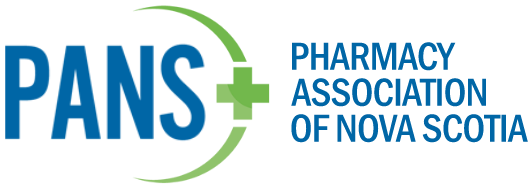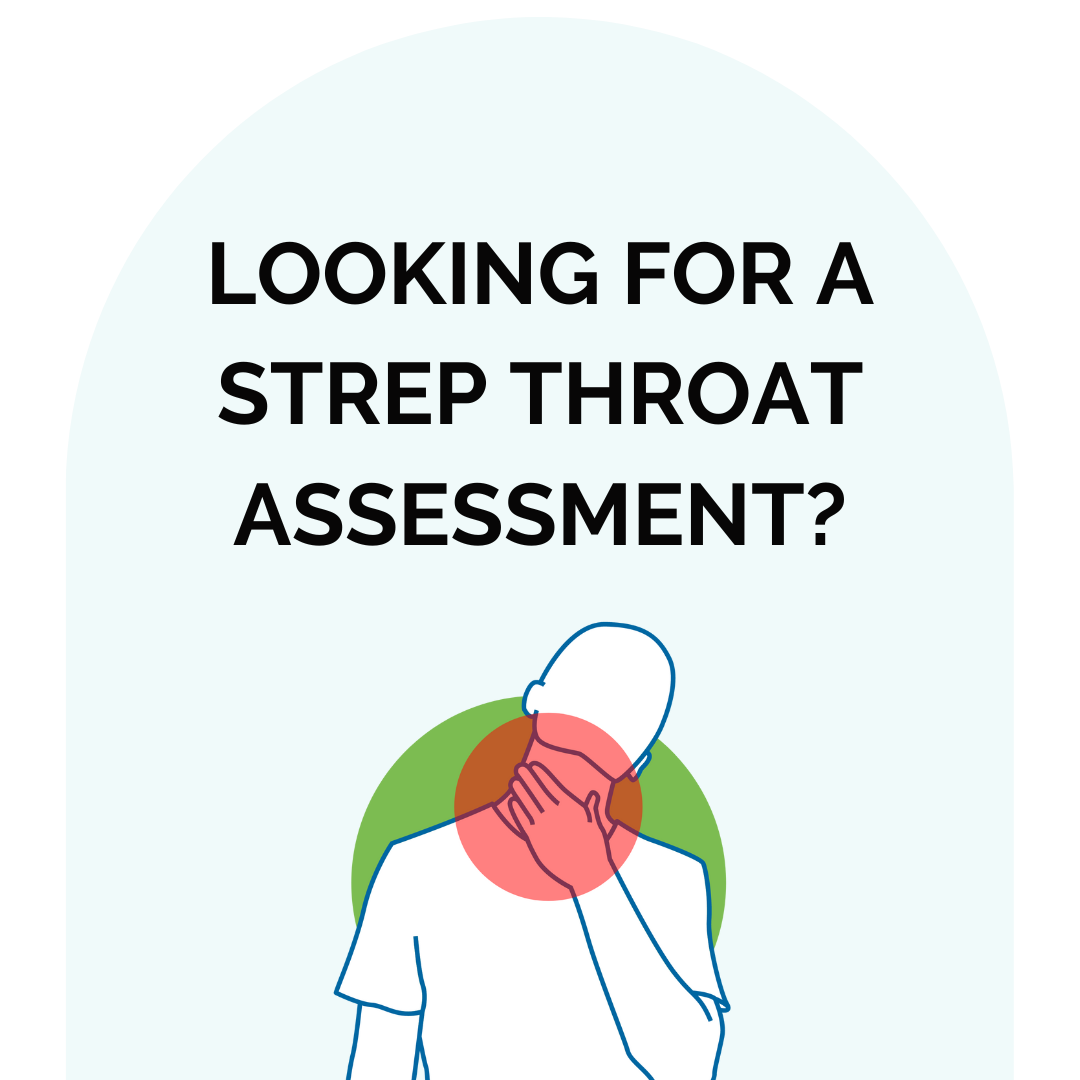The Pharmacy Association of Nova Scotia (PANS), in partnership with the Government of Nova Scotia and Nova Scotia Health, is piloting new primary care clinics at select pharmacy locations. Clinics are located in areas with the highest number of people without a family doctor.
These pharmacist-led clinics will provide an extended suite of pharmacy primary care services at no charge to people with a valid Nova Scotia Health Card. These services include assessment and prescribing for Strep Throat, Pink Eye, UTIs, Chronic Disease Management (Diabetes, Asthma, COPD), prescription renewals for all medications and more. Publicly funded vaccines for adults and children are also available at these clinics as well as medical injections (fee may apply).
These clinics are part of an ongoing study. Please click here for a copy of the consent form you will need to complete in order to receive care at these clinics. Learn more about services offered, participating locations, and how to book online appointments below.
HEALTHCARE PROVIDERS: FIND CPPCC REFERRAL FORM HERE.

Is your health card expired or expiring soon? You can renew it here.
PARTICIPATING PHARMACIES
Central Zone
| City | Pharmacy Name | Clinic Address | Clinic Phone Number | Appointment Booking Link |
|---|---|---|---|---|
| Bedford | Brookline Pharmasave | 105 - 6 Bloom Lane | 902-835-9111, ext 2 | Click Here to Book |
| Bedford | Lawtons' Pharmacy Clinic | 201-967 Bedford Hwy (Medical Clinic Door) | 902-835-6135 | Click Here to Book |
| Bedford/Halifax | Guardian Bedford | 535 Larry Uteck Blvd | 902-407-4373, ext 0 | Click Here to Book |
| Dartmouth | Shoppers Drug Mart | 118 Wyse Rd | 902-464-9644, ext 3, 5 | Click Here to Book |
| Cole Harbour | Shoppers Drug Mart | 4 Forest Hills Parkway | 902-434-9800 | Click Here to Book |
| Dartmouth | The Medicine Shoppe | 105-133 Baker Dr | 902-461-2244 | Click Here to Book |
| EasternPassage | Passage Pharmachoice | 6 Cow Bay Road | 902-800-2920 | Click Here to Book |
| Halifax | Boyd's Pharmacy | 2525 Agricola Street | 902-417-2088 | Click Here to Book |
| Halifax | Chaulks Family Pharmasave | 366 Lacewood Drive | 902-431-3100 | Click Here to Book |
| Halifax | Lawtons' Scotia Square | 5201 Duke Street | 902-429-5436 | Click Here to Book |
| Halifax | Shoppers Drug Mart | 6025 Almon St | 902-453-3723, ext 3, 5 | Click Here to Book |
| Halifax | Shoppers Drug Mart | 3430 Joseph Howe Dr | 902-443-6084, ext 3, 5 | Click Here to Book |
| HammondsPlains | Hammonds Plains Pharmacy | 2120 Hammonds Plains Road | 902-832-7123 | Click Here to Book |
| Lower Sackville | Shoppers Drug Mart | 766 Sackville Dr | 902-864-4631, ext 3, 5 | Click Here to Book |
| Lower Sackville | Lawtons' Pharmacy Clinic | 201-159 Cobequid Road | 902-864-2125 | Click Here to Book |
| Spryfield | Shoppers Drug Mart | 315 Herring Cove Road | 902-477-1210 | Click Here to Book |
| Windsor | Windsor Pharmasave | 30 Gerrish St | 902-798-2216, ext 8 | Click Here to Book |
Eastern Zone
| City | Pharmacy Name | Clinic Address | Clinic Phone Number | Appointment Booking Link |
|---|---|---|---|---|
| Antigonish | Teasdale Apothecary | 65 Beech Hill Rd | 902-735-2696, ext 2 | Click Here to Book |
| Glace Bay | Shoppers Drug Mart | 255 Commercial St | 902-849-2920, ext 3, 5 | Click Here to Book |
| Guysborough | Guysborough Pharmacy | 133 Main Street | 902-533-2224 | Click Here to Book |
| New Waterford | Midtown Pharmasave | 3435 Plummer Ave | 902-862-7188 | Click Here to Book |
| North Sydney | PharmaChoice | 107 King St | 902-794-4444 | Click Here to Book |
| Port Hawkesbury | The Medicine Shoppe | 708B Reeves St | 902-631-0806 | Click Here to Book |
| Sydney | Shoppers Drug Mart | 254 Prince St, Unit A015 | 902-562-1144, option 3, 5 | Click Here to Book |
| Sydney | The Medicine Shoppe | 288 Welton Street | 902-500-5250 | Click Here to Book |
| Whycocomagh | MacKeigans Pharmacy | 25 MacKeigans Lane | 902-756-2314 | Click Here to Book |
Northern Zone
| City | Pharmacy Name | Clinic Address | Clinic Phone Number | Appointment Booking Link |
|---|---|---|---|---|
| Amherst | Loblaws Drugstore #312 | 126 South Albion St | 902-661-0703 ext 190 | Click Here to Book |
| Amherst | Lawtons' Pharmacy Clinic | 2 Lawrence St, Unit 204 | 902-661-1627 | Click Here to Book |
| Elmsdale | Guardian - Elmsdale Pharmacy | 269 Hwy 214 | 902-883-2228, ext 0 | Click Here to Book |
| Kennetcook | Kennetcook Guardian | 6202 Highway 354, Unit 2 | 902-362-2211 | Click Here to Book |
| New Glasgow | Shoppers Drug Mart | 912 East River Rd | 902-752-0280, ext 3, 5 | Click Here to Book |
| New Glasgow | Lawtons' Pharmacy Clinic | 211- 810 East River Rd | 902-752-2287 | Click Here to Book |
| Pictou | Pictou Pharmasave | 33 Water St | 902-485-4339 | Click Here to Book |
| Truro | The Medicine Shoppe | 1B-664 Prince St | 902-814-2679 | Click Here to Book |
| Truro | Lawtons' Pharmacy Clinic | 206-316 Willow St | 902-896-0987 | Click Here to Book |
Western Zone
| City | Pharmacy Name | Clinic Address | Clinic Phone Number | Appointment Booking Link |
|---|---|---|---|---|
| Aylesford | Chisholm's Pharmacy | 2710 Hwy 1 | 902- 847-3465 | Click Here to Book |
| Bridgewater | Bridgewater Guardian | 202-42 Glen Allan Dr | 902-530-2217 | Click Here to Book |
| Bridgewater | Lawtons' Pharmacy Clinic | 202-26 North St | 902-543-1550 | Click Here to Book |
| Chester | MacQuarries Pharmasave - Chester | 3785 NS Trunk 3 | 902-275-3518, ext 2 | Click Here to Book |
| Digby | Balser's Pharmachoice | 83 Warwick St | 902-247-3108 | Click Here to Book |
| Digby | Shoppers Drug Mart | 95 Warwick St | 902-245-4722, ext 3, 5 | Click Here to Book |
| Greenwood | Shoppers Drug Mart | 1124 Bridge St | 902-765-3060, ext 3, 5 | Click Here to Book |
| New Minas | Lawtons' Pharmacy Clinic | 202-20 Silver Fox Ave | 902-678-4165 | Click Here to Book |
| Saulnierville | Saulnierville Pharmacy | 9999 Highway 1 | 902-769-0893 | Click Here to Book |
| Shelburne | TLC Pharmasave | 157 Water St | 902-875-4852 | Click Here to Book |
| Yarmouth | City Drug Store | 369 Main St | 902-742-3579, ext 3 | Click Here to Book |
Find CPPCC phone and fax directory here.
Pharmacists look at medical history, symptoms and physical assessment to determine if a swab test is needed. In some cases a test will not be appropriate.Antibiotics are only prescribed if patient is determined to have a bacterial infection; there is no prescribed treatment for viral infection. |
|
Strep Throat, Birth Control, Shingles treatment, Lyme disease prevention, UTI, urinary tract infection, Heartburn, Thrush, Yeast Infection, Cold Sores, Allergies, Eczema, Acne, Pink Eye, Lab test, A1C, INR, glucose, cholesterol, vaccine, injection, medication, drug, infection, throat, bladder, tick bite, prevent lyme, refill, renewal, walk-in, shingles, clinic, medical clinic, immunization, shot, pneumonia, tetanus, eczema, yeast infection, white stuff in mouth, heartburn, cold soreSERVICES OFFERED




 The pharmacist will do an assessment to determine if it is safe and effective for you to continue to take the medication(s). If appropriate, the pharmacist will prescribe renewals (refills) for your medication(s) for up to 12 months. The assessment will involve a discussion with you and, in some cases, conducting tests (such as taking your blood pressure or conducting a point of care test). Your pharmacist may review any relevant lab test results. If necessary, they may adapt or substitute your therapy during the renewal process. In some cases, it may be determined that your pharmacist does not have enough information to renew your prescription. If, after your consultation with your pharmacist, they determine a physical assessment is required by another healthcare provider, you may be referred to a physician or nurse practitioner.
The pharmacist will do an assessment to determine if it is safe and effective for you to continue to take the medication(s). If appropriate, the pharmacist will prescribe renewals (refills) for your medication(s) for up to 12 months. The assessment will involve a discussion with you and, in some cases, conducting tests (such as taking your blood pressure or conducting a point of care test). Your pharmacist may review any relevant lab test results. If necessary, they may adapt or substitute your therapy during the renewal process. In some cases, it may be determined that your pharmacist does not have enough information to renew your prescription. If, after your consultation with your pharmacist, they determine a physical assessment is required by another healthcare provider, you may be referred to a physician or nurse practitioner.  Patients diagonosed with heart disease and high blood pressure qualify to receive chronic disease care from a pharmacist.
Patients diagonosed with heart disease and high blood pressure qualify to receive chronic disease care from a pharmacist.  Patients diagnosed with asthma or COPD qualify to receive chronic disease care from a pharmacist.
Patients diagnosed with asthma or COPD qualify to receive chronic disease care from a pharmacist.  Patients diagnosed with diabetes qualify to receive chronic disease care from a pharmacist.
Patients diagnosed with diabetes qualify to receive chronic disease care from a pharmacist.  COMMON & MINOR AILMENTS THAT PHARMACISTS CAN ASSESS & PRESCRIBE FOR:
COMMON & MINOR AILMENTS THAT PHARMACISTS CAN ASSESS & PRESCRIBE FOR: This service is only for those seeking a method of hormonal contraception. Pharmacists cannot provide this service if you require birth control for reasons other than contraceptive purposes (such as managing menstrual cramps, acne, etc).
This service is only for those seeking a method of hormonal contraception. Pharmacists cannot provide this service if you require birth control for reasons other than contraceptive purposes (such as managing menstrual cramps, acne, etc). An early start of antiviral medications for patients with shingles (herpes zoster) is very important. During your assessment, the pharmacist will assess your symptoms. Symptoms can include:
An early start of antiviral medications for patients with shingles (herpes zoster) is very important. During your assessment, the pharmacist will assess your symptoms. Symptoms can include: Lyme Disease Prevention
Lyme Disease Prevention

 Pharmacists participating in the Community Pharmacy Primary Care Clinic Project can assess patients age 3 and over that have a sore throat to confirm if they have strep throat (Group A Streptococcal infection) which will require antibiotics. The pharmacist will ask questions about medical history, signs and symptoms that the patient is experiencing and perform a head, neck and throat exam. If the patient has signs of strep throat confirmed by the exam, the pharmacist will also take a swab of the back of the throat and perform a rapid molecular test in the pharmacy which will take approximately 10 minutes. If positive, the pharmacist may prescribe antibiotics to prevent complications of Group A Strep .
Pharmacists participating in the Community Pharmacy Primary Care Clinic Project can assess patients age 3 and over that have a sore throat to confirm if they have strep throat (Group A Streptococcal infection) which will require antibiotics. The pharmacist will ask questions about medical history, signs and symptoms that the patient is experiencing and perform a head, neck and throat exam. If the patient has signs of strep throat confirmed by the exam, the pharmacist will also take a swab of the back of the throat and perform a rapid molecular test in the pharmacy which will take approximately 10 minutes. If positive, the pharmacist may prescribe antibiotics to prevent complications of Group A Strep .  Medication & Mental Illness Assessments (Bloom Program)
Medication & Mental Illness Assessments (Bloom Program)
 Pharmacists participating in the Community Pharmacy Primary Care Clinic Project can assess patients age 3 and over who have a sore ear(s). These pharmacists can assess for both acute otitis externa “swimmer’s ear” and acute otitis media “ear infection”. The pharmacist will ask questions about medical history, signs, and symptoms that the patient is experiencing and check inside the ears using an otoscope. If the patient has signs of an acute bacterial infection a second device may be used to further support the diagnosis.
Pharmacists participating in the Community Pharmacy Primary Care Clinic Project can assess patients age 3 and over who have a sore ear(s). These pharmacists can assess for both acute otitis externa “swimmer’s ear” and acute otitis media “ear infection”. The pharmacist will ask questions about medical history, signs, and symptoms that the patient is experiencing and check inside the ears using an otoscope. If the patient has signs of an acute bacterial infection a second device may be used to further support the diagnosis. Pharmacists participating in the Community Pharmacy Primary Care Clinic Project can assess patients age 3 and over who are having persistent sinus symptoms or severe symptoms. These pharmacists will review the signs and symptoms with the patient and discuss the length of time the patient has been experiencing these symptoms to assess if the condition appears viral or bacterial in nature. Pharmacists may recommend a watch and wait approach, or provide pain management, or prescribe a nasal steroid spray, or prescribe an oral antibiotic depending on the assessment. In all recommendations, patients will be given signs/symptoms to monitor, follow up details or instructions on when to see another health care provider if necessary.
Pharmacists participating in the Community Pharmacy Primary Care Clinic Project can assess patients age 3 and over who are having persistent sinus symptoms or severe symptoms. These pharmacists will review the signs and symptoms with the patient and discuss the length of time the patient has been experiencing these symptoms to assess if the condition appears viral or bacterial in nature. Pharmacists may recommend a watch and wait approach, or provide pain management, or prescribe a nasal steroid spray, or prescribe an oral antibiotic depending on the assessment. In all recommendations, patients will be given signs/symptoms to monitor, follow up details or instructions on when to see another health care provider if necessary.